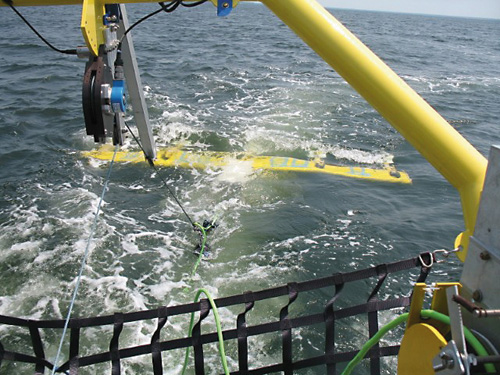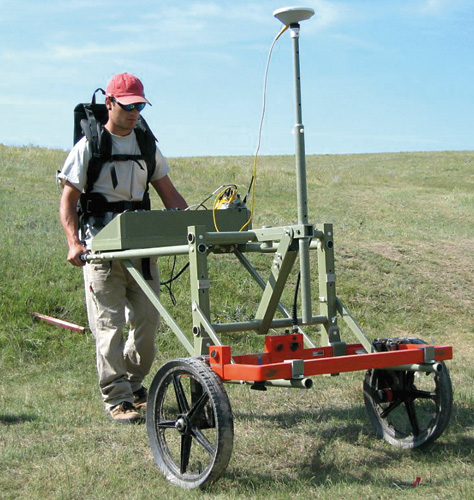 During the dangerous days of World War II, U.S. Navy ships in need of a resupply would motor up to a supply depot at the Port of Seattle, likely dumping spent rounds and unneeded munitions overboard to expedite the process.
During the dangerous days of World War II, U.S. Navy ships in need of a resupply would motor up to a supply depot at the Port of Seattle, likely dumping spent rounds and unneeded munitions overboard to expedite the process.
BY JON BELL
 |
Above: Sky Research’s UXO technology could help clean up offshore wind farm sites in Europe.Below: Millions of acres of U.S. soil could be contaminated by UXO. |
 |
During the dangerous days of World War II, U.S. Navy ships in need of a resupply would motor up to a supply depot at the Port of Seattle, likely dumping spent rounds and unneeded munitions overboard to expedite the process.
It might not have seemed like a big deal then, but 70 years later, with more cruise ships than battleships plying the waters, the leftover munitions discovered near the busy terminal posed a real threat — and not just to safety but to the greater Seattle economy. In 2010 the cruise ship industry brought in more than $245 million to the area, so any disruption could have made big waves.
But thanks in part to an innovative company in Ashland called Sky Research, which uses advanced sensing technology to locate unexploded bombs, mines and other ordnance, divers and unmanned vehicles located and removed more than 220 potentially dangerous items and helped keep the cruise ships coming.
“Sometimes in our nation’s history, prioritization has not been given to cleaning up after ourselves,” says Bryan Coggins, chief operating officer for Sky, “so we help with that.”
Founded as a remote sensing company in the 1980s by pilots Sky and Anne Sky, the firm incorporated in 1995 and moved to Ashland two years later. Over the years, Sky Research has refined its technology, which includes Light Detection and Ranging (LiDAR), orthophotography and digital mapping, to vastly improve and expedite the detection of unexploded ordnance (UXO).
The company, which had revenue in 2010 of around $25 million, employs 150 people, about a quarter of them in Oregon; 35 new people have been added this year alone. Most of Sky Research’s work is for the government at former shooting ranges, especially those being encroached upon by suburban development. Coggins says marine and commercial applications, such as mineral, oil and gas exploration, are expanding as well.
In addition, Sky Research hopes to eventually use its technology for humanitarian purposes, helping to clean up areas with notorious UXO problems in southern Asia and elsewhere.
“That is our ambition,” Coggins says, “because we have some pretty slick technology that could make it a lot safer for anyone in these regions.”


